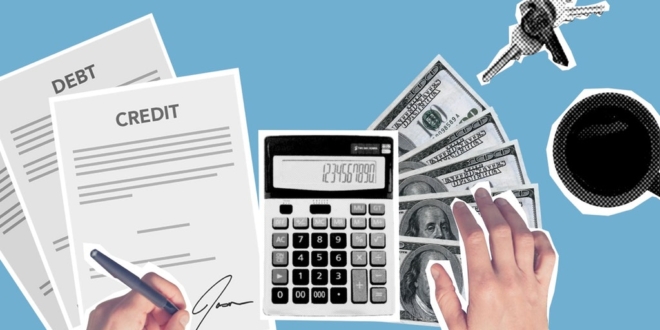Debt consolidation will help you simplify your finances by consolidating different balances into a single account with a single monthly payment if you want to eliminate or reduce debt. However, debt consolidation may not be appropriate in all circumstances.
Here’s what you need to know about how it works, some of your choices, and how it can affect your credit.
How Does Debt Consolidation Work?
it can be difficult to keep track of different debt payments every month. By merging different debts into a new loan or credit card, debt consolidation may make it easier to manage your payments.
Your outstanding balances are paid off with the money from the new account. Rather than making multiple debt payments every month, you make one payment as per the terms of the new loan agreement.
What’s the Best Way to Consolidate Debt?
Consolidating debt can be done in a variety of ways. The best solution for you is determined by a number of factors, including the amount of debt you owe, your credit history, and the interest rates on your current accounts.
Debt Consolidation Loan
A debt consolidation loan is a type of personal loan used to consolidate different debts into a single new account. It may be used to pay off credit card balances, medical bills, and other types of debt. Debt consolidation loans are available from banks, credit unions, and online lenders. Your credit score will determine the amount and interest rate you are eligible for.
Balance Transfer Card
You can transfer balances from one or more credit cards to a card with a lower interest rate using a balance transfer. Some balance transfer cards offer introductory 0% APR or low interest offers for a short time, as long as you make your payments on time. However, if you miss a payment, the credit card company may cancel the offer and charge interest on the balance on your card.
Home Equity Loan
You can borrow money against the value of your house with a home equity loan. A cash-out refinance loan may be an option if you can get a lower mortgage rate than you currently have. A cash-out refinance replaces your current mortgage with a new loan, and you receive cash from a portion of the equity you’ve built up over time.
Does Debt Consolidation Hurt Your Credit?
Your credit score can be affected by debt consolidation depending on your financial situation and credit history. Remember that your credit scores are influenced by five major factors. Here’s a look at each of them might be affected by debt consolidation.
Payment History
Your payment history is an important factor in determining your credit scores. If you’re having trouble making multiple debt payments every month, consolidating your debt into a single monthly payment may help you make more on-time payments and improve your credit score.
Amounts Owed
The ratio of your available credit to the amount you’re using is known as credit utilization. This ratio should be kept below 30%, according to experts. Consolidating your balances if you’ve maxed out your credit cards and paying back the debt on time will help lower your credit utilization, which could improve your credit scores.
Length of Credit History
It’s better to have a longer credit history. When you open a new account, the average age of your credit history decreases, potentially lowering your credit scores.
Credit Mix
Your credit scores are also influenced by the kinds of accounts you have, such as credit cards, installment loans, mortgages, and so on. Having a diverse set of accounts will help you improve your credit score.
Hard Inquiries
When you apply for new credit, you get a hard credit inquiry, which lowers your credit score by a few points — but the effect isn’t usually long-lasting. Making on-time payments and reducing your credit utilization would have a greater effect on your credit score than just a single inquiry.







